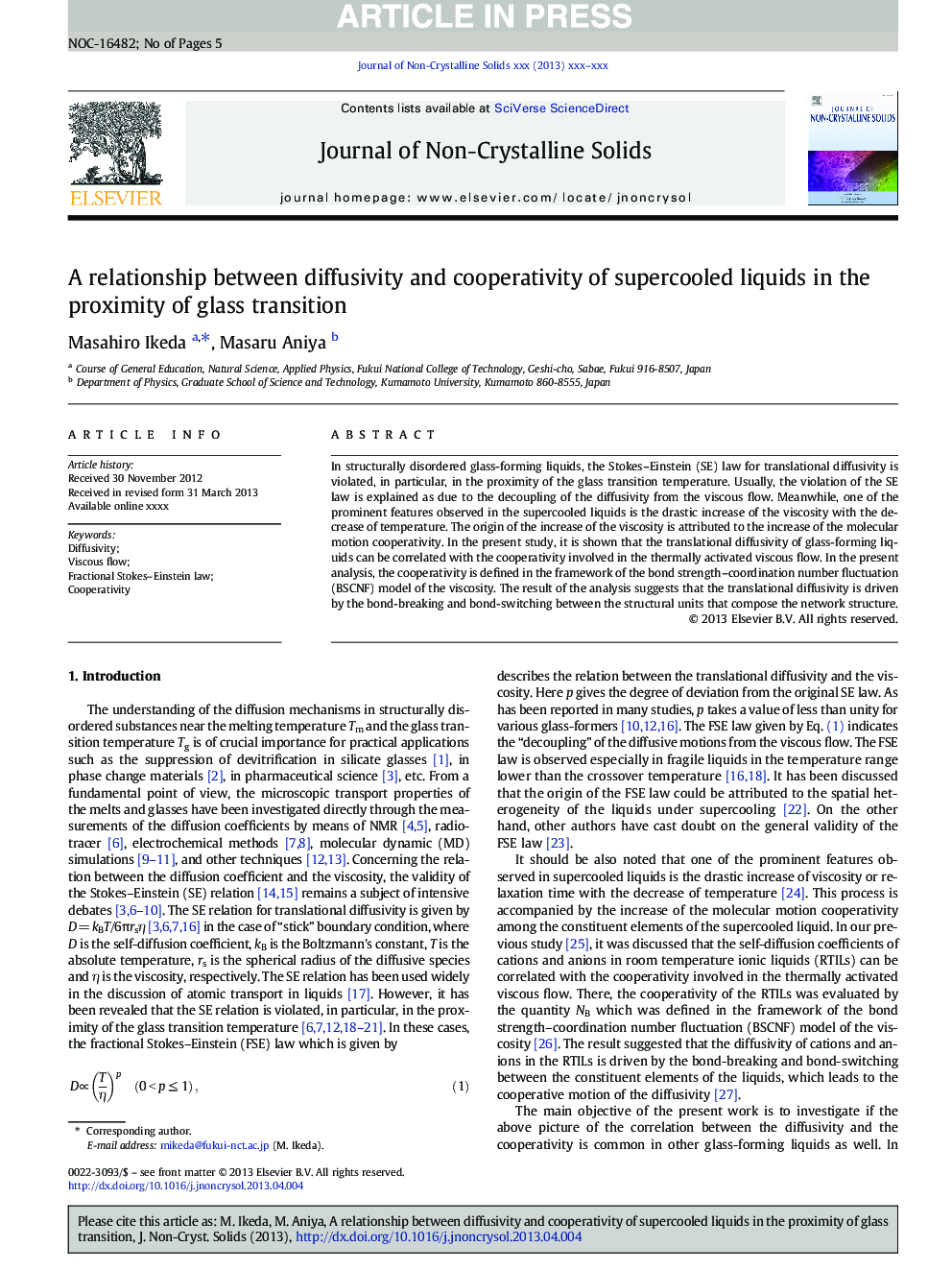| Article ID | Journal | Published Year | Pages | File Type |
|---|---|---|---|---|
| 7902617 | Journal of Non-Crystalline Solids | 2014 | 5 Pages |
Abstract
In structurally disordered glass-forming liquids, the Stokes-Einstein (SE) law for translational diffusivity is violated, in particular, in the proximity of the glass transition temperature. Usually, the violation of the SE law is explained as due to the decoupling of the diffusivity from the viscous flow. Meanwhile, one of the prominent features observed in the supercooled liquids is the drastic increase of the viscosity with the decrease of temperature. The origin of the increase of the viscosity is attributed to the increase of the molecular motion cooperativity. In the present study, it is shown that the translational diffusivity of glass-forming liquids can be correlated with the cooperativity involved in the thermally activated viscous flow. In the present analysis, the cooperativity is defined in the framework of the bond strength-coordination number fluctuation (BSCNF) model of the viscosity. The result of the analysis suggests that the translational diffusivity is driven by the bond-breaking and bond-switching between the structural units that compose the network structure.
Keywords
Related Topics
Physical Sciences and Engineering
Materials Science
Ceramics and Composites
Authors
Masahiro Ikeda, Masaru Aniya,
